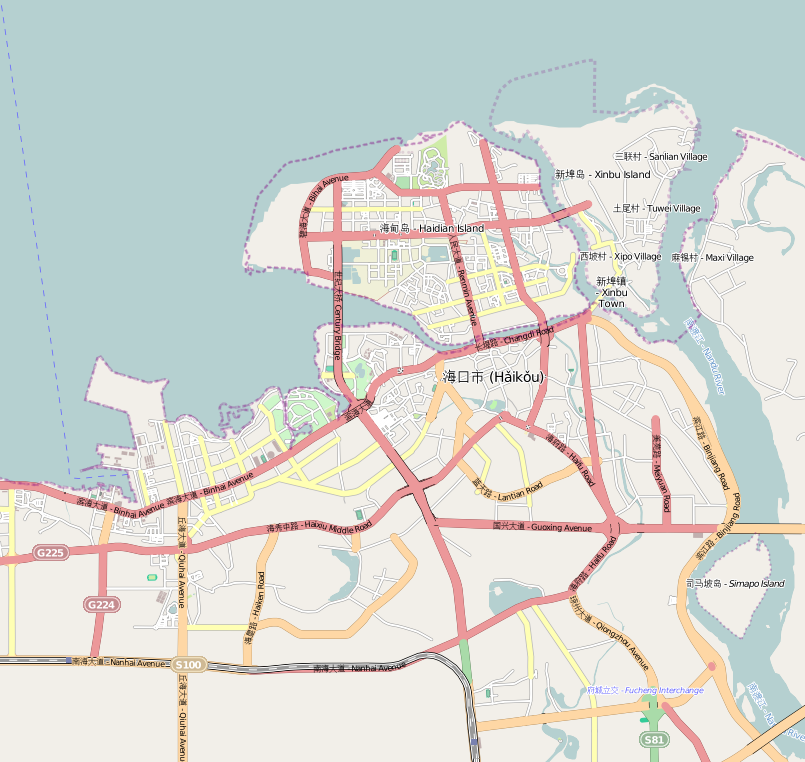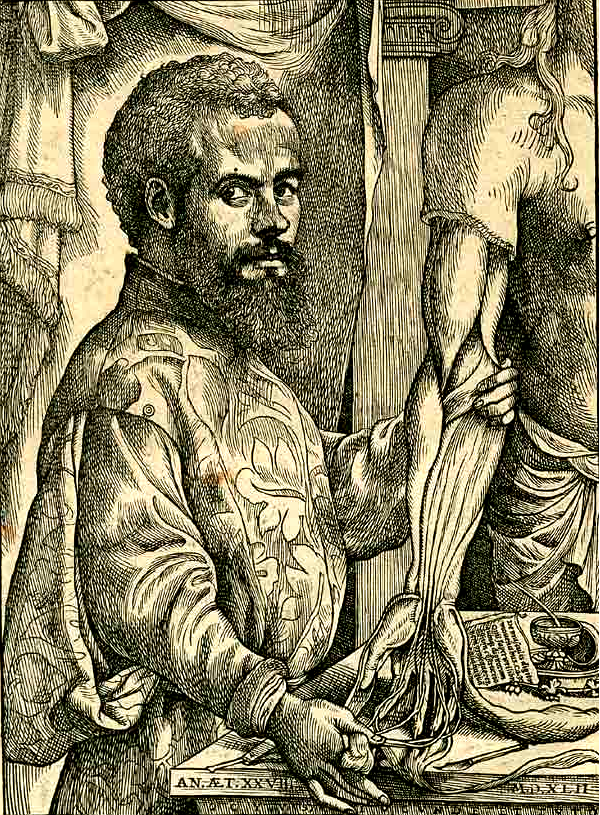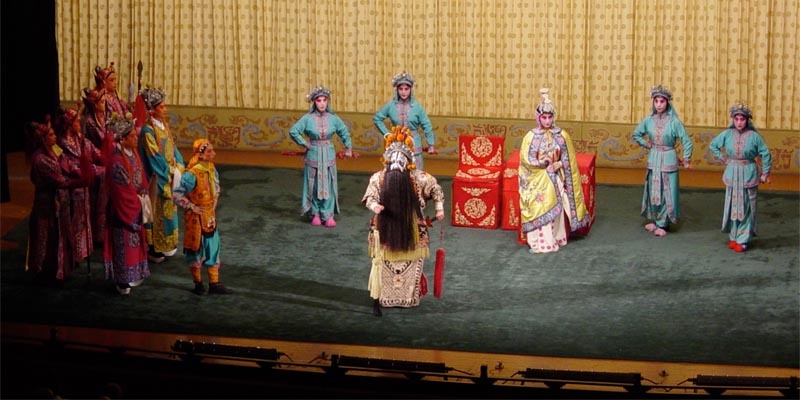|
Hai Rui
Hai Rui (January 23, 1514 – November 13, 1587), courtesy name Ru Xian (), art name Gang Feng (), was a Chinese scholar-official, philosopher and politician of the Ming dynasty, remembered as a model of honesty and integrity in office. Biography Hai Rui, was born in Haikou City, Hainan on January 23, 1513. His father died when he was three, and he was raised by his Muslim mother. His great-great-grandfather was an Arab named Hai Da-er ( zh, link=no, 海答兒, Haydar, Haidar, an Arabic name), and his mother was from a Muslim (Hui people, Hui) family with ancestry that originated from the Indian subcontinent. Hai himself however was noted primarily as a Neo-Confucianist and never discussed Islam in his Confucian works. Hai took the Imperial examination but was unsuccessful, and his official career only began in 1553, when he was 39, with a humble position as clerk of education in Fujian. He gained a reputation for his uncompromising adherence to upright morality, scrupulous ho ... [...More Info...] [...Related Items...] OR: [Wikipedia] [Google] [Baidu] |
Haikou City
Haikou; Chinese postal romanization, formerly romanized as Hoihow is the capital city, capital and most populous city of the Chinese province of Hainan. Haikou city is situated on the northern coast of Hainan, by the mouth of the Nandu River. The northern part of the city is on the Haidian Island, which is separated from the main part of Haikou by the Haidian River, a branch of the Nandu. Administratively, Haikou is a prefecture-level city, comprising four districts, and covering . There are 2,046,189 inhabitants in the built-up area, all living within the four urban districts of the city. Haikou was originally a port city, serving as the port for Qiongshan District, Qiongshan. During the Chinese Civil War, Haikou was one of the last Republic of China (1912–1949), Nationalist strongholds to be taken by the Communist Party of China, Communists – with the Battle of Hainan Island in 1950. Currently, more than half of the island's total trade still goes through Haikou's ports. ... [...More Info...] [...Related Items...] OR: [Wikipedia] [Google] [Baidu] |
Longqing Emperor
The Longqing Emperor (4March 15375July 1572), also known by his temple name as the Emperor Muzong of Ming, personal name Zhu Zaiji, art name Shunzhai, was the 13th emperor of the Ming dynasty, reigning from 1567 to 1572. He was initially known as the Prince of Yu () from 1539 to 1567 before he became the emperor. He succeeded his father, the Jiajing Emperor. After the death of the Jiajing Emperor, the Longqing Emperor inherited a country in turmoil due to years of mismanagement and corruption. Recognizing the extent of the chaos caused during his father's lengthy reign, the emperor worked to restore order in the state administration. He reinstated talented officials who had been previously exiled and dismissed corrupt officials and Taoist priests who had surrounded the Jiajing Emperor. Additionally, he lifted the ban on foreign trade, boosting the empire's economy, and reorganized the border troops to strengthen security on the inland and coastal borders. The seaports of Zhejian ... [...More Info...] [...Related Items...] OR: [Wikipedia] [Google] [Baidu] |
1514 Births
Year 1514 (Roman numerals, MDXIV) was a common year starting on Sunday of the Julian calendar. Events January–March * January 10 – A great fire breaks out, in the Rialto of Venice. * February 12 – War of the League of Cambrai: In what is now the Italian region of Friuli-Venezia Giulia, Giacomo Badoer (died 1537), Giacomo Badoer, administrator of the Republic of Venice, orders a retreat from the approaching forces of the Holy Roman Empire, abandoning Udine, Cividale and Cormons and falling back on Sacile. * March 12 – A huge exotic embassy sent by King Manuel I of Portugal to Pope Leo X arrives in Rome, including Hanno (elephant), Hanno, an Indian elephant. * March 13 – Louis XII of France makes peace with Maximilian I, Holy Roman Emperor. April–June * April 29 – After a month of negotiations at Linz between the Holy Roman Empire and the Kingdom of Denmark, representatives of the two nations sign an alliance agreement, to be s ... [...More Info...] [...Related Items...] OR: [Wikipedia] [Google] [Baidu] |
Haikou
Haikou; Chinese postal romanization, formerly romanized as Hoihow is the capital city, capital and most populous city of the Chinese province of Hainan. Haikou city is situated on the northern coast of Hainan, by the mouth of the Nandu River. The northern part of the city is on the Haidian Island, which is separated from the main part of Haikou by the Haidian River, a branch of the Nandu. Administratively, Haikou is a prefecture-level city, comprising four districts, and covering . There are 2,046,189 inhabitants in the built-up area, all living within the four urban districts of the city. Haikou was originally a port city, serving as the port for Qiongshan District, Qiongshan. During the Chinese Civil War, Haikou was one of the last Republic of China (1912–1949), Nationalist strongholds to be taken by the Communist Party of China, Communists – with the Battle of Hainan Island in 1950. Currently, more than half of the island's total trade still goes through Haikou's ports. ... [...More Info...] [...Related Items...] OR: [Wikipedia] [Google] [Baidu] |
Zhou Xinfang
Zhou Xinfang (14 January 1895 – 8 March 1975), also known by his stage name (meaning "Qilin Boy") was a Chinese actor and musician who was a Peking opera actor who specialized in its "old male" (, ''laosheng'') roles. He is considered one of the greatest grand masters of Peking Opera of the 20th century and the best known and leading member of the Shanghai school of Peking opera. He was the first director of the Shanghai Peking Opera Company. Over 650 Peking Operas performed by Zhou have been identified by the Zhou Xinfang Arts Research Centre in China by 2015, topping all actors in recorded Chinese performing arts history in terms of known number of repertoire titles. One of his operas, ''Hai Rui Submits His Memorial'', was regarded as an attack on Chairman Mao Zedong, for which he was persecuted during the Cultural Revolution. Early life Zhou, a native of Cixi, Ningbo, Zhejiang, was born on January 14, 1895, in Qingjiangpu, Jiangsu into a family with a tradition of ope ... [...More Info...] [...Related Items...] OR: [Wikipedia] [Google] [Baidu] |
Mao Zedong
Mao Zedong pronounced ; traditionally Romanization of Chinese, romanised as Mao Tse-tung. (26December 18939September 1976) was a Chinese politician, revolutionary, and political theorist who founded the People's Republic of China (PRC) in 1949 and led the country from Proclamation of the People's Republic of China, its establishment until Death and state funeral of Mao Zedong, his death in 1976. Mao served as Chairman of the Chinese Communist Party (CCP) from 1943 until his death, and as the party's ''de facto'' leader from 1935. His theories, which he advocated as a Chinese adaptation of Marxism–Leninism, are known as Maoism. Born to a peasant family in Shaoshan, Hunan, Mao studied in Changsha and was influenced by the 1911 Revolution and ideas of Chinese nationalism and anti-imperialism. He was introduced to Marxism while working as a librarian at Peking University, and later participated in the May Fourth Movement of 1919. In 1921, Mao became a founding member of the ... [...More Info...] [...Related Items...] OR: [Wikipedia] [Google] [Baidu] |
Peng Dehuai
Peng Dehuai (October 24, 1898November 29, 1974; also spelled as Peng Teh-Huai) was a Chinese general and politician who was the Minister of National Defense (China), Minister of National Defense from 1954 to 1959. Peng was born into a poor peasant family, and received several years of primary education before his family's poverty forced him to suspend his education at the age of ten, and to work for several years as a manual laborer. When he was sixteen, Peng became a professional soldier. Over the next ten years Peng served in the armies of several Hunan-based warlord armies, raising himself from the rank of private second class to major. In 1926, Peng's forces joined the Kuomintang, and Peng also got introduced to communism during this time. Peng participated in the Northern Expedition, and supported Wang Jingwei's attempt to form a Wuhan Nationalist government, left-leaning Kuomintang government based in Wuhan. After Wang was defeated, Peng briefly rejoined Chiang Kai-shek ... [...More Info...] [...Related Items...] OR: [Wikipedia] [Google] [Baidu] |
Yao Wenyuan
Yao Wenyuan (January 12, 1931 – December 23, 2005) was a Chinese literary critic, politician, and member of the Gang of Four during China's Cultural Revolution. Biography Yao Wenyuan was born in Zhuji, Zhejiang, to an intellectual family. His father, Yao Pengzi () was a writer, translator and art critic. He began his career in Shanghai as a literary critic, where he became known for his sharp attacks against colleagues, such as in June 1957 against the newspaper '' Wenhuibao''. Since that time, he began to closely collaborate with leftist Shanghai politicians, including the head of the city's Propaganda Department, Zhang Chunqiao. His article "On the New Historical Beijing Opera 'Hai Rui Dismissed from Office, published in ''Wenhuibao'' on November 10, 1965, launched the Cultural Revolution. The article was about a popular opera by Wu Han, who was deputy mayor of Beijing. Zhang Chunqiao and Jiang Qing feared the play could be counter-revolutionary because parallels cou ... [...More Info...] [...Related Items...] OR: [Wikipedia] [Google] [Baidu] |
Gang Of Four
The Gang of Four () was a Maoist political faction composed of four Chinese Communist Party (CCP) officials. They came to prominence during the Cultural Revolution (1966–1976) and were later charged with a series of treasonous crimes due to their responsibility for the excesses and failures in the Cultural Revolution. The gang's leading figure was Jiang Qing (Mao Zedong's last wife). The other members were Zhang Chunqiao, Yao Wenyuan, and Wang Hongwen. The Gang of Four controlled the power organs of the CCP through the later stages of the Cultural Revolution, although it remains unclear which major decisions were made by Mao Zedong and carried out by the Gang, and which were the result of the Gang of Four's own planning. Their fall did not amount to a rejection of the Cultural Revolution as such; it was organized by the new leader, Chairman Hua Guofeng, and others who had risen during that period. Significant repudiation of the entire process of change came later, with the ... [...More Info...] [...Related Items...] OR: [Wikipedia] [Google] [Baidu] |
Hai Rui Dismissed From Office
''Hai Rui Dismissed from Office'' (; also called ''Dismissal of Hai Jui'' in English) is a stage play, written by Wu Han (1909–1969), notable for its involvement in Chinese politics during the Cultural Revolution. The play itself focused on a loyal Ming minister named Hai Rui, who was portrayed as a savior to passive peasants for whom he reversed unjust land confiscations. The play became a center of scholarly and political controversy because of its implications for debates within the communist party, including at the Lushan Conference, regarding the political role of peasants going forward in light of the failures during the Great Leap Forward. Background Wu Han, who wrote the play, was a historian and politician who focused on the Ming Dynasty. He also served simultaneously as a Deputy Mayor in Beijing. In 1959, Wu became interested in the life of Hai Rui (1514–1587), a Ming-era minister who was imprisoned for criticizing the Jiajing Emperor. Wu Han wrote several a ... [...More Info...] [...Related Items...] OR: [Wikipedia] [Google] [Baidu] |
Peking Opera
Peking opera, or Beijing opera (), is the most dominant form of Chinese opera, which combines instrumental music, vocal performance, mime, martial arts, dance and acrobatics. It arose in Beijing in the mid-Qing dynasty (1644–1912) and became fully developed and recognized by the mid-19th century. The form was extremely popular in the Qing court and has come to be regarded as one of the cultural treasures of China. Major performance troupes are based in Beijing, Tianjin and Shanghai. The art form is also preserved in Taiwan, where it is also known as (). It has also spread to other regions such as the United States and Japan. Peking opera features four main role types, ''Sheng role, sheng'' (gentlemen), ''dan role, dan'' (women), ''jing role, jing'' (rough men), and ''chou role, chou'' (clowns). Performing troupes often have several of each variety, as well as numerous secondary and tertiary performers. With their elaborate and colorful costumes, performers are the only focal ... [...More Info...] [...Related Items...] OR: [Wikipedia] [Google] [Baidu] |
Wu Han (historian)
Wu Han ( zh, s=吴晗, p=Wú Hán}; August 11, 1909 – October 11, 1969) was a Chinese historian and politician. Wu was one of the most important historians in the development of modern historical scholarship in China during the 1930s and 1940s. In the 1940s he was a leading member of the China Democratic League, a non-aligned political organization during most of the Chinese civil war which eventually threw its weight behind the Chinese Communist Party. After 1949, he served as the Vice Mayor of Beijing. In November 1965, at the beginning of the Cultural Revolution, he came under attack for a play he wrote about an upright Ming dynasty official called ''Hai Rui Dismissed from Office'', which was widely understood as an anti-Mao allegory. His political downfall also resulted in the purge of Beijing Mayor Peng Zhen. Wu died in prison in 1969. Biography Early life and education Wu Han was born in Yiwu, Zhejiang in 1909. With support from the Wu clan organization and with th ... [...More Info...] [...Related Items...] OR: [Wikipedia] [Google] [Baidu] |






